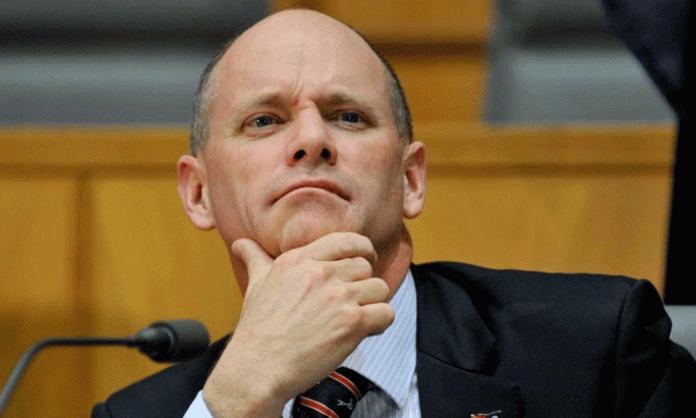Campbell Newman’s Liberal National Party (LNP) has made clear its vision for Queensland: one inspired by the neoliberal method of attacking workers and defending the interests of the bosses and their profits.
Newman has slashed jobs and services, attacked workers at every opportunity and legislated to make it increasingly harder for our unions to fight back. So at this half way mark, it’s worth taking stock of the story so far.
Ongoing job cuts
From the very beginning, the LNP has had Queensland workers in its cross hairs, with public sector workers bearing the brunt of the attacks. Although promising no forced redundancies, once elected, Newman appointed Peter Costello, former Howard treasurer, to head an “independent” audit of the state’s finances.
After the audit warned of a looming budget crisis, Newman declared he had little choice but to slash public spending. First to go were up to 3,000 temporary staff, axed together in one fell swoop on what became known as “Black Friday”, 30 June 2012.However, even permanent employees were not safe, as the budget for the 2012-13 financial year included 14,000 cuts of permanent staff from across the public service. To facilitate this, Newman unilaterally removed job security provisions in the existing EBA, which he enshrined in legislation despite union protests.
Those public sector workers who managed to keep their jobs are now subject to “contestability”, which Newman describes as “testing whether someone else can do it for less money, do the same job or an even better job for less money than is currently occurring”.
This paves the way for outsourcing to the private sector, with treasurer Tim Nichols declaring, for example, that Queensland’s TAFE institutions are at “the top” of the government’s hit list. Contestability is also being used to drive down wages, as is occurring in WorkCover, where 188 positions are being downgraded, workers having to choose between accepting an average of $10,000 less per year and being retrenched.
Services savaged
Newman also stripped funding from a range of community organisations that provide services to some of the most disadvantaged sections of the population. Under the $260 million Grant Funding Efficiencies program, savings are being made by “ceasing or reducing funding for lower priority projects and services”.
Such “low priorities” have included sexual health services, subjected to the loss of 30 jobs, despite health care professionals warning that this will lead to “a public health catastrophe”.
Although Kevin Rudd has since announced, as part of the federal election campaign, funding to keep services going for another year, the Queensland health minister has dismissed the move, describing it as “ridiculous”.
Such is the LNP’s disdain for the community sector that it completely rejected a similar $2.5 million lifeline from the commonwealth that would have allowed the state’s Tenancy Advice and Advocacy Service (TAAS) to remain open.
As a result, the service was forced to close its doors on 30 June, despite increasing demand, including from a growing number of homeless. One Brisbane TASS office described the service as being for many “the difference between having a roof over your head and homelessness”. Clearly, those living under the constant threat of eviction, or who are already living rough on the streets, are another “low priority” for the LNP.
Attacking unions
Newman’s vision includes a strong state that stamps out dissent and supports the bosses against any fight back. Newman quickly moved to introduce cumbersome balloting procedures, making it more difficult to engage in protected strike action. From 1 July 2013, the LNP introduced a new code of practice aimed at cracking down on union activity in the building industry following a heroic and successful nine week strike over equal pay at the Queensland Children’s Hospital late last year.
The new code aims to prevent major projects being “held to ransom by militant unions” – in other words, preventing unions taking similar successful action in the future. Newman has even taken away the official May Day holiday, long celebrated in Queensland, as a deliberate insult to unions and an assertion that we should recognise just who’s boss in this state.
Newman has also passed legislation requiring unions to get members’ approval before embarking on campaigns that will cost more than $10,000. Under the guise of empowering members, this measure is aimed solely at making it more cumbersome for unions to campaign on behalf of their members. Although rejected by the Industrial Relations Commission, Newman went so far as to attempt to ban the Together public sector union from communicating with its members or adversely commenting on current EBA negotiations.
Such is the arrogance of the LNP that one MP even threatened on his Facebook page to have organisers of a demonstration against the closure of a nursing home charged with contempt of parliament after he was heckled when he tried to address the rally. And of course Brisbane has the G20 to look forward to in November 2014, when police and security powers will be bolstered and local residents will require passes just to access their own homes.
Newman’s government is an expression and reinforcement of existing class divisions within the state, Newman’s “reforms” clearly targeting workers and the disadvantaged. With moves to continue outsourcing government functions and services, including handing over control of the $1.8 billion Sunshine Coast University Hospital currently under construction to private sector interests, it’s also clear that the LNP will continue to serve the interests of business at our expense.
Meanwhile the LNP parliamentarians have their snouts well and truly in the trough, pocketing a 42 percent pay rise while crying poor and offering public servants a measly 2.2 percent. The trend will continue until our side can build a sustained fight back in our unions and on the streets.








